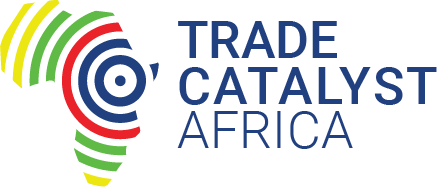With a population projected to reach over2.5 billion by 2050and currently the world’s youngest with a median age of 19, Africa presents a growing market of tech-savvy consumers with 570 million internet users and a smartphone penetration of 64%, according to a GSMA survey.
This creates a rapidly growing opportunity for tech businesses to unify the continent through solutions that require businesses to think globally but take local action. We look at what it will take to unify the African market and what this would do for tech businesses.
Opportunities in Tech
Companies can continue to gather momentum by taking advantage of the expanding opportunities in technology – where we’ve seen FinTech presenting opportunities for mobile industry players – and putting initiatives in place. These initiatives include incubators, accelerators, government initiatives and forging strategic alliances with entities such as the trade blocs.
The successful integration of digital services across nations and regions requires collaboration between corporate entities, governments and those regional organisations. To do so, they must align standards and upgrade existing regulatory frameworks, such as the East African Payments System (EAPS).
The EAPS allows for the seamless transfer of payments, settlements and remittances between Kenya, Tanzania, Rwanda and Uganda. It also securely connects accounts across the region and enhances open banking and financial infrastructure, further encouraging trade and commerce.
The Southern African Development Community (SADC) is an example of a trade bloc. This regional organisation has now implemented a regional payment system called the SADC Integrated Regional Electronic Settlement System to facilitate cross-border payments and remittances across the 16 countries in the Economic Community of West African States (ECOWAS), which launched its payment scheme in 2015, also enabling cross-border payments and money transfers.
Strategic Alliances with Entities
The integration of a market of 300 million has created many opportunities. Rwanda, Kenya and Uganda have reported a 50% increase in cross-border trade due to revised administrative procedures simplifying work permits and visas.
And the African Union has implemented the African Continental Free Trade Area (AfCFTA) to promote economic growth and development, eliminate trade barriers and increase the continent’s competitiveness on the global stage.
African leaders have also established other regional blocs to facilitate trade. Aside from the SADC and ECOWAS, other trade blocs include the Community of Sahel-Saharan States, the East African Community and the Common Market for Eastern and Southern Africa.
According to the African Development Bank (AfDB), intra-African trade is the lowest globally at approximately 15%, compared to the European Union at 70%. Technology is an essential tool to achieve regional integration as it provides unprecedented connectivity and facilitates the exchange of best practices.
The world is becoming more digital. For instance, technology and digital integration with Norebase and Sidebrief offer immense potential for reinforced collaboration through developing unified systems and infrastructure, boosting market efficiencies and addressing regional issues such as poverty, peace and security.
Still, approximately two-thirds of Africans remain unbanked. But applicable solutions such as mobile payments continue to gain traction in the market.
A report on mobile money highlighted that in 2020 the number of registered mobile money accounts grew by 12% to 562 million. For instance, the Kenya National Payments System Vision and Strategy 2021-2025, released in December 2020, highlights the regulator’s commitment to establishing a regulatory landscape conducive to innovation and embracing open banking and APIs.
In addition, businesses should also focus on building trust with local customers. This can be done by providing clear and transparent information about their products and services and by being responsive to customer needs and concerns.
Passing legislation on API-based access to customer data
The advent of open banking – in which financial information is connected via Application Programming Interface (API) – and the API-based access to customer data held by banks has already revolutionised the European financial sector in the case of the EU Payment Services Directive (PSD2).
African central banks should follow suit by pushing for similar legislation at a regional level. As most migration is within the continent, opening up infrastructure to allow for faster payments and more trade of goods and services across the region could result in a single market that would benefit customers, banks and FinTech innovators.
We can enhance trade by making the sharing of information possible. Banks can collaborate on verifying purchase orders across borders if they can share companies’ financial industry and verify identities.
Bridging the gaps between national regulations and connecting African markets through open banking would be a major step forward for the continent. It could allow for a more efficient, secure and innovative financial landscape.
FinTech
With the projected population growth and increasing access to technology, the future of FinTech is positioned to play a major role in the continent’s economic development.
Through scaling and integration of tech-enabled businesses such as Fingo Africa, businesses can unlock opportunities to increase their revenue. They can also expand their customer base with the right partners to levels seen in developing markets like Latin America and India.
What a unified market would do for Africa
If Africa became a unified market, it would involve creating a single commercial alliance for the entire continent by removing tariff and non-tariff barriers, consolidating customs and regulatory regimes and establishing infrastructure to facilitate trade.
The benefits of a single market would include the ability for countries to trade freely, reduce costs and stimulate economic growth. It would also provide greater access to global markets, job creation and increased foreign investment
A unified market would also provide opportunities for developing a unified foreign-exchange market with a single currency or exchange rate framework. This would enable businesses to conduct cross-border transactions more efficiently and at a lower cost. Same-day settlement of transactions would also provide businesses with greater certainty around cash flows and promote financial inclusion.
Continental clearing houses and ID verification
Harmonising existing local systems such as continental clearing houses and ID verification would also be possible, reducing risk and increasing efficiency. And the creation of a unified ‘know your customer’ (KYC) and ‘know your business’ (KYB) framework would reduce compliance costs and promote cross-border transactions.
Virtual escrow services could be developed to help reduce transaction risks, and African cryptocurrencies could be introduced to facilitate cross-border activities. This would reduce transaction costs, increase financial inclusion and promote economic growth.
Africa urgently needs to be integrated, but it is also essential to acknowledge its innate troubles. To overcome this, governments need to recognise the importance of digital integration, be equipped with the requisite resources and be ready to take action.
Clara Wanjiku Odero is the CEO and co-founder of Credrails, which enables FinTech companies to build apps for more than 50 countries through single API access. Credrails aims to become the infrastructure API for Africa.
Read original article

